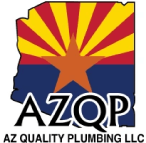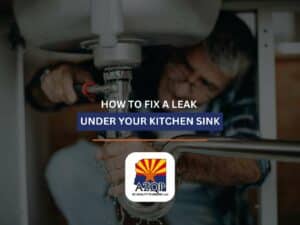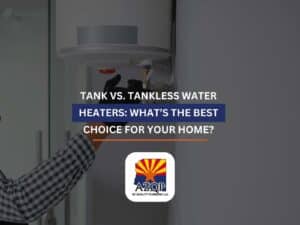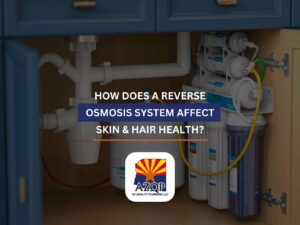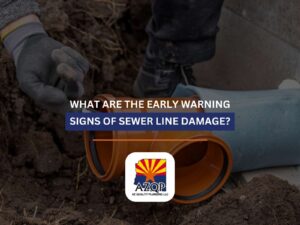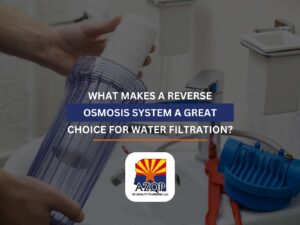Tank vs. Tankless Water Heaters: What’s The Best Choice For Your Home?
A Guide To Select The Best Water Heater Option For Your Needs
Choosing between a tank and a tankless water heater can feel overwhelming when all you really want is reliable hot water. Both options have their perks and their downsides, but the final choice depends on your home, budget, and daily needs.
Luckily, we’ve created this brief guide to help you figure out which one is the best for you, so take note of each step. Keep reading to discover everything you need to know about Tank vs. Tankless Water Heaters and how to make the right choice.
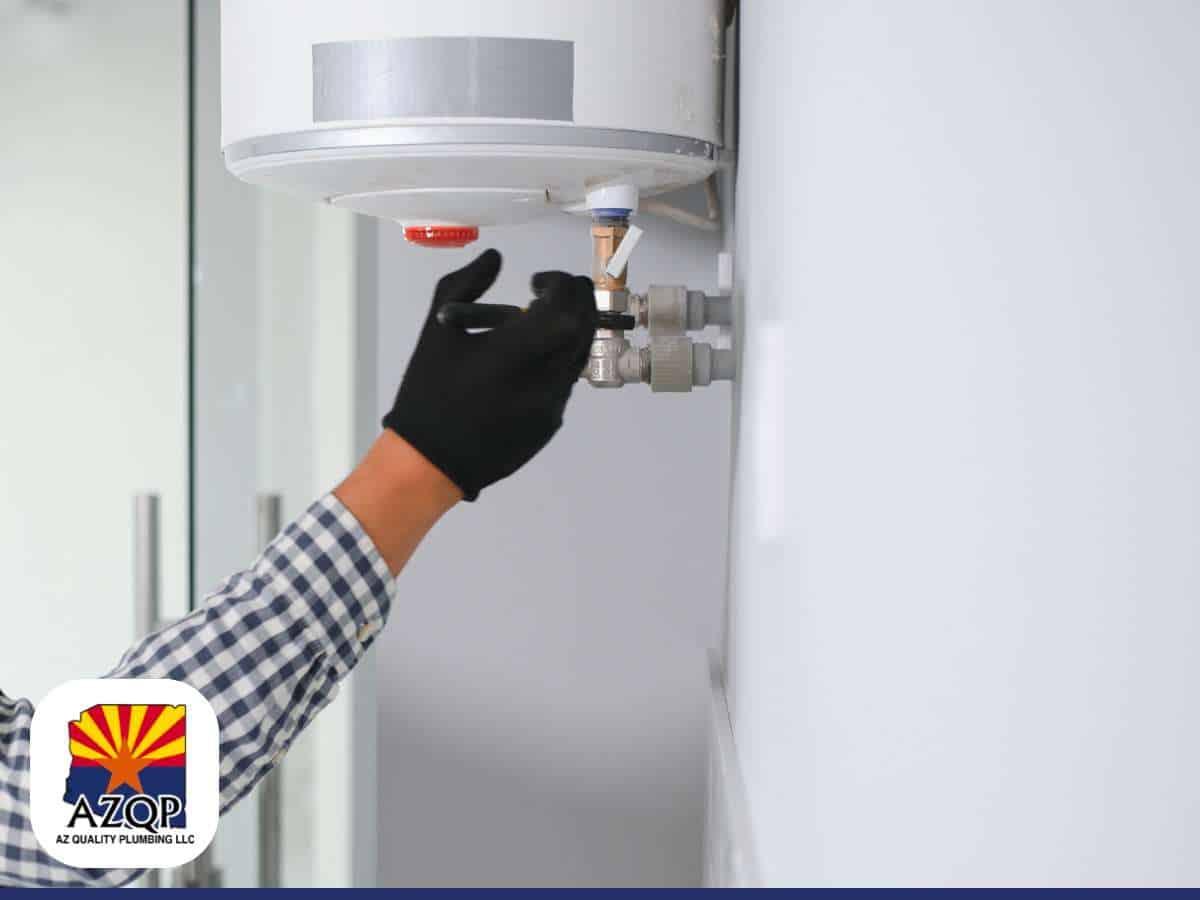
What Is a Tank Water Heater & How Does It Work?
A tank water heater is the classic setup most people are familiar with. It stores a lot of water (from 30 to 80 gallons) in a tank and keeps it heated around the clock, so it’s ready whenever you need it.
As the hot water is used, the tank refills with cold water, and the heating process starts again (although this process can take a little while).
Tank water heaters usually come in different sizes, like 30, 40, or 50 gallons, depending on how much hot water your household typically needs. They’re quite simple, affordable upfront, and easy to install, but they can be less energy-efficient since they’re always working to keep the water hot, even when you’re not using it.
What Is a Tankless Water Heater & How Does It Work?
A tankless system is exactly what the name says it is; it heats water on demand rather than storing it in a tank. Hot water is available only when you turn on the tap.
When someone turns on the hot water tap, cold water flows through a heating element (either gas or electric), and the system heats it instantly as it passes through. This means there’s no big tank sitting around holding water and, in theory, you never “run out” of hot water because it keeps heating as long as the tap is open.
One big advantage of tankless water heaters is their energy efficiency, since they’re not constantly keeping a tank of water hot. But depending on the model and the demand, sometimes the flow rate can be a bit limited if multiple showers or appliances are running at the same time, which may require plumbing repair if the system isn’t functioning properly.
What Size Tankless Water Heater Do I Need?
In Arizona, the incoming water temperature is warmer than in colder climates, meaning you’ll need less power to heat water. To pick the right size, calculate how much hot water you’ll need at once (GPM — gallons per minute) for multiple appliances or showers running together.
- 1-2 bathrooms: A 6–8 GPM unit should be sufficient.
- 3–4 bathrooms: Opt for a 9–11 GPM unit.
Keep in mind, if you have a large family or frequently use multiple hot water sources simultaneously, consider a higher GPM unit. For precise sizing, consulting with a local plumber can ensure you get the most efficient system for your home.
Key Differences Between Tank & Tankless Water Heaters
Now that you know their definition, let’s take a look at their key differences so that you can have a better idea of what to expect from each system when contacting your plumber. Understanding the main points of Tank vs. Tankless Water Heaters will help you make a smarter, more informed decision:
- Storage vs. on-demand: Tank heaters store hot water in a big tank, keeping it heated all the time. Tankless heaters heat water instantly as it flows through the system.
- Energy use: Tankless units are generally more energy-efficient because they don’t have to maintain a constant temperature like tanks do.
- Hot water supply: Tanks can run out of hot water if the supply is used up faster than it can refill. Tankless heaters can technically provide endless hot water, but their flow rate can be limited if too many taps are open at once.
- Size and space: Tankless heaters are much smaller and mount to a wall, making them a good option for tight spaces. Tank models are bulky and take up floor space.
- Cost: Tank water heaters usually cost less upfront but may have higher energy bills over time. Tankless heaters are more expensive to install but can save money in the long run.
- Lifespan: Tankless units often last longer (around 20 years) while tank models usually last about 8–12 years.
Factors To Consider When Choosing a Water Heater
When choosing between a tank and a tankless water heater, a few key factors come into play, including household size and water demand, to name a few.
Household size and water usage are crucial when choosing the ideal water heater. Larger families or homes with high simultaneous water use might lean toward a bigger tank or a powerful tankless system. However, That’s just part of what you should consider, as budget and energy efficiency are also important.
Keep in mind that tank heaters are cheaper upfront, while tankless models cost more initially but tend to lower energy bills over time. Space availability is another consideration, as tankless units are compact and wall-mounted, making them ideal for smaller areas, while tank systems need more room.
As we mentioned before, energy efficiency goals can also influence the decision. Tankless models generally use less energy since they only heat water when needed. However, installing a tankless unit might require updates to plumbing, ventilation, or electrical systems, which can increase costs.
Timing of water demand also matters: if the household uses a lot of hot water all at once, a traditional tank or a highly capable tankless model might be necessary.
Finally, it’s worth thinking about lifespan and maintenance. Tankless heaters usually last longer but need regular descaling, especially in hard water areas. Traditional tanks require less frequent maintenance but tend to wear out sooner.
Ultimately, the decision comes down to balancing budget, household size, available space, and how important energy efficiency is in the bigger picture. A quick chat with a professional plumber can also help make the final call easier.
Get Expert Help From a Professional Maricopa Plumber For Your Water Heater Installation
Choosing the right water heater is all about matching your home’s needs with the right system. It can be an affordable and reliable traditional tank or a modern tankless unit; it all depends on your patterns, space, and long-term costs.
If you’re ready to upgrade your home’s hot water system or just need expert advice, the team at AZ Quality Plumbing is here to help. Contact us today to get started with a professional Maricopa plumber consultation and installation.
